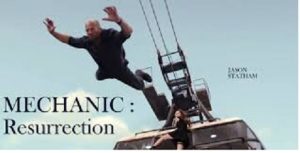 South Bend, Indiana – Days Corporation (“Days”) of Elkhart, Indiana filed a complaint asking the Northern District of Indiana to resolve infringement claims relating to three patents.
South Bend, Indiana – Days Corporation (“Days”) of Elkhart, Indiana filed a complaint asking the Northern District of Indiana to resolve infringement claims relating to three patents.
The lawsuit was brought against Lippert Components, Inc. (“LCI”), also of Elkhart, Indiana. Both Days and LCI operate in the recreational vehicle (“RV”) industry. They offer competing systems designed to level a vehicle, for example, one that is situated on uneven terrain causing the vehicle to be oriented on an undesirable plane.
At issue in this Indiana litigation are three patents, U.S. Patent Nos. 6,584,385 (“the ‘385 patent”), 6,885,924 (“the ‘924 patent”) and 6,619,693 (“the ‘693 patent”). LCI claims intellectual property protection under the ‘385 patent and the ‘924 patent, while Days claims rights under the ‘693 patent.
Each party asserts that the other party is committing patent infringement. Days asks the court for a declaratory judgment of non-infringement and patent invalidity of the LCI patents. It also seeks a judgment that LCI has infringed the ‘693 patent. The complaint, filed by a patent litigator for Days, lists the following claims:
- Count I: Declaratory Judgment of Non-Infringement by Days of the ‘385 Patent
- Count II: Declaratory Judgment of Non-Infringement by Days of the ‘924 Patent
- Count III: Declaratory Judgment of Invalidity of the ‘385 Patent
- Count IV: Declaratory Judgment of Invalidity of the ‘924 Patent
- Count V: Infringement by LCI of the ‘693 Patent
In addition to a declaratory judgment and a judgment of infringement, Days seeks damages, including a trebling of those damages pursuant to a finding of willful infringement, and injunctive relief.
Continue reading

 Indiana Intellectual Property Law News
Indiana Intellectual Property Law News






